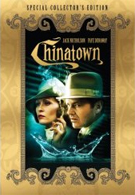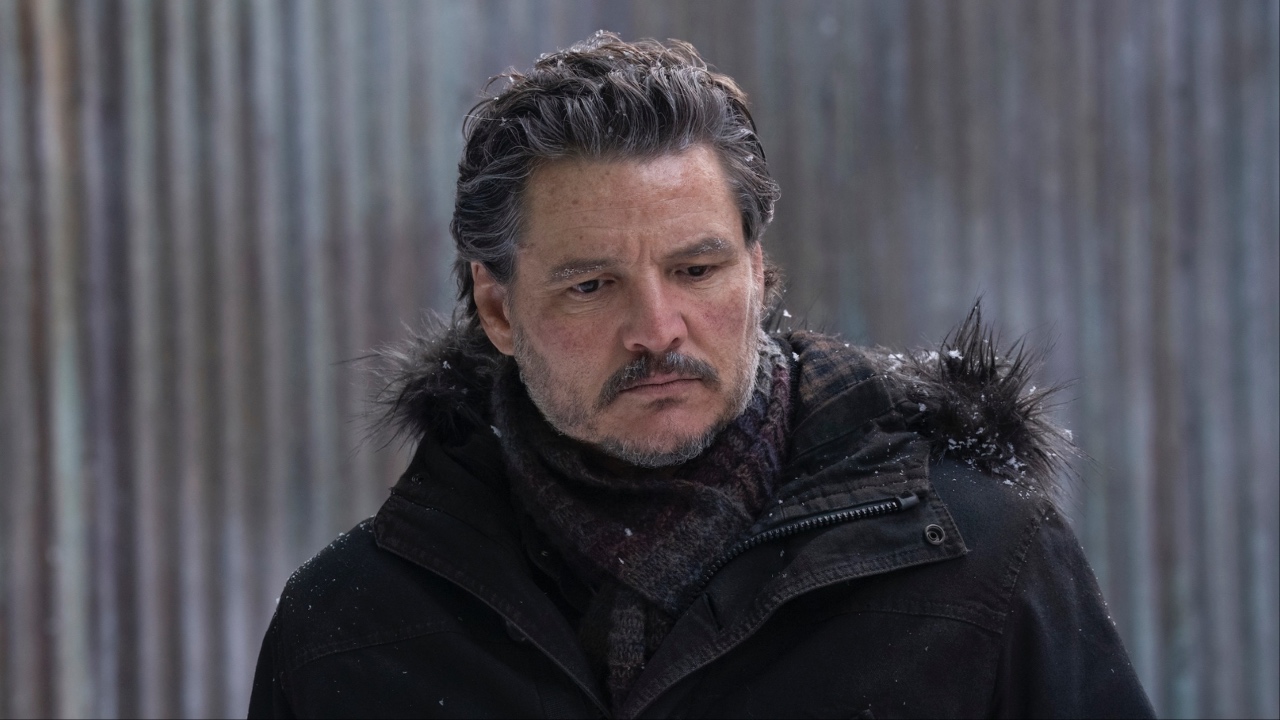If there’s one film that can represent much of what the “New Hollywood” of the 1970s stood for, it’s Roman Polanski’s ambitious and masterful neo-noir Chinatown (1974). For the talented young filmmakers of that great decade, the classical cinema was long dead, gasping its last breath about six years earlier with the release of Easy Rider, Bonnie and Clyde, and The Wild Bunch. All of those films represented a shift in tone and style, if not subject. The new filmmakers such as Scorsese, Altman, Coppola, and DePalma did not so much reinvent the Hollywood film as revise it through a more European, ironic lens. No longer would the myths of the cowboy, war hero, or hardboiled detective be accepted at face value. Everyone was suspect and everything an illusion. A film like Chinatown was perhaps inevitable. Hollywood loved the detective genre as much for its City of Angels setting as its audience-involving mysteries. LA was wrapped up in cinematic lore, both tabloid and center screen. Its poet was author Raymond Chandler, who created a literary vision of the place as a timeless pit of hopelessness and human despair where only his “white knight”, Philip Marlowe, had the courage to fight the good fight. A faux cynic who was really a romantic at heart, Chandler could never allowthe city’s corruption to stain his hero’s ideals. This was the myth Chinatown would confront, a theme that was expressed fully in its enigmatic and mysterious title.
Much like Joseph Heller’s Catch-22, screenwriter Robert Towne intended Chinatown to suggest something paradoxical about human experience: The more you try to comprehend and control a situation, the more incomprehensible and out of control it can become. In the film, private eye J.J Gittes (Jack Nicholson) once served there as a police officer and saw it as a closed world where you couldn’t always tell what was really going on. When asked what he did in Chinatown, Gittes answers, “As little as possible.” But this wasn’t the real truth. In actuality, Gittes left the force when his good intentions led to the death of a girl there.
At first, Gittes appears to be a detective in the Chandler and Hammett tradition but we soon learn that his meal ticket is divorce work. He spends most of his days peeping into windows taking pictures of illicit affairs. It’s work he doesn’t seem especially proud of but as he says, ”It pays the bills.” His mundane job takes a turn one day when he’s hired by someone claiming to be Evelyn Mulwray (Diane Ladd) to follow her “cheating” husband. Mr. Mulwray turns out to be the head of the city’s water department and when he’s found drowned, the real Mrs. Mulwray (Faye Dunaway) turns up to ask just why Gittes was following her husband. The brilliant, Oscar winning screenplay wraps up this riddle inside an enigma as Gittes finds himself up to his neck in a truly labyrinthine mystery that leads to Evelyn‘s father, Noah Cross, played by a ghoulish John Huston. By the end of the film Gittes will learn that nothing in the world can be truly understood and everything is certainly out of HIS control.
The most unusual aspect of Chinatown is how much it depends on cliché’ for it’s effect. It’s a “New Hollywood” production but in many ways it was really an “Old Hollywood” project, from its classical detective story to its foundation as a collaborative work uniting a producer, screenwriter, star, and director. It’s also one of the best examples of how a director, in this case Polanski, can craft a perfect Hollywood entertainment as well as a work of personal art without sacrificing one for the other.
But this isn’t just Polanski’s show. Chinatown, like The Godfather is one of those rare films where everything is simply perfect. The screenplay is one of the most complexly structured and layered ever written. The intense work that Towne must have done in order to unite his storylines had to be exhausting. It’s cast perfectly, right down to the smallest roles and it’s production design goes beyond period accuracy to arrive at period atmosphere where you feel like you’ve slipped into a dream of the past. The score by Jerry Goldsmith was composed in a week and is as integral as any other element to the film’s haunting power.
Jack Nicholson was perhaps never better than he is in this film. The role was written for him and rarely have we seen more humanity and sensitivity from the actor. Throughout, he conveys so much using his expressions that we seem to be reading his mind. At the end of the film, Gittes is left in a state of shock and this may be Nicholson’s greatest moment onscreen. He conveys the kind of despair that cannot be rendered through cheap dialogue and is the real reason the ending has the punch that it does. Once again his good intentions have ended up in tragedy. He’s heard muttering a line we heard earlier, “As little as possible”. The “White Knight” of Chandler is left drowning in a sea of corruption. Evil doesn’t only win, it triumphs to be seen by history as good.
But beyond all the “masterpiece” rhetoric, this is actually a great movie. There are so many gems here: The slitting of the nosy detective’s actual nose by a thug played by Polanski himself, the great “sister…daughter…sister…daughter” slap-a-thon, Gittes’ joke about making love like a “chinaman”, and of course, the incredible final line, “Forget it, Jake. It’s Chinatown”. It’s unforgettable. Paramount’s earlier release of Chinatown on DVD was heavily criticized for its greenish color tones but there’s no doubt that this has been corrected for this new version as the color is exactly like the 35mm stills I‘ve seen over the years. There are subtitles available in French, Portuguese and Spanish but, sorry, not Chinese.
There is an odd discrepancy on the box art. The package advertises four documentary features which end up as only three on the actual DVD. I don’t think anything was left out, just combined. The missing featurette, Acting Chinatown seems like it’s been mixed into the other three and may have been cut because of Faye Dunaway‘s lack of participation. For whatever reason, Dunaway is not involved in any of the extras on this DVD and her presence is missed.
Chinatown: The Beginning and The End focuses on the gestation of the screenplay and the tug of war between Polanski and Towne in shaping the final film. Much of this material has been heard before but there’s a bit of a bonus in that Towne explains in greater detail what his original ending would’ve been. It’s great to see these new interviews with Polanski, Towne, and, surprisingly, Jack Nicholson, as they recollect and sometimes contradict each others’ stories. Producer Robert Evans appears as well but this is edited from his interview on the earlier disc.
Filming Chinatown covers the actual production with the famous stories about Polanski and Nicholson’s battle over a Lakers game on TV and the plucking of Miss Dunaway’s unresponsive hair that led to a meltdown on set. If you know about the film’s backstage lore, there’s nothing new here except to see the real affection that Nicholson and Polanski seem to still have for each other as professionals and friends.
The final featurette is Chinatown: The Legacy and this covers the film’s status as a modern classic. It appears that Towne had conceived the story originally as a trilogy for the character of Gittes which would take place over 30 years and be played by Nicholson at the correct age each time. The box office failure of The Two Jakes ended that possibility so we’ll most likely never see “Cloverleaf”(not the J.J Abrams monster flick) which was the third chapter.
The original theatrical trailer is included as well, with music that’s found nowhere in the film. Could this be fragments of the rejected original score? It‘s certainly atmospheric enough but lacking the romantic aura of the Goldsmith score.
So, is this the definitive version of Chinatown on DVD? Yes and no. It’s much better than the previous version and its price is a bargain. But a more comprehensive look at this important film is still waiting to be produced. A more complete version would at least include the screenplay on DVD-ROM, interviews with Faye Dunaway, and perhaps a commentary and featurettes on the intricate production design and the historical background of the story itself. Until Criterion gets around to doing what Paramount should’ve done, this will have to do.
Michael B. Jordan Replaces Mahershala Ali As Blade In Sinners-Inspired Marvel Fan Art
The Last Of Us Season 2, Episode 2's Heartbreaking Ending Reminded Me Of A Key Walking Dead Episode (But Not The One You'd Think)
NCIS: Origins' Showrunner Revealed 'The Real Highlight' Of Learning Season 2 Was Happening, And I Discovered They Pulled Off An Amazing Achievement In The Process











